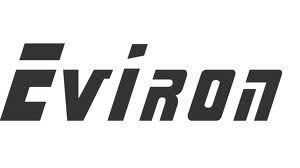You’d be surprised how many data points there are when it comes to shopping online. When you take into consideration data across the web and then across the social web we’re talking about hundreds of millions of data points. While the normal shopper can’t analyze or look at all of those data points, sometimes shopping for clothes online can easily result in 30 or 40 open browser windows. This can get ugly, confusing, and slow your computer down.
A Vancouver startup called Wantering is hoping to help solve your fashion faux pas, by analyzing over 100 million data points for you in what they call the “WantRank” algorithm.
Whether you’re shopping by deal, brand, category, color, print, fabric, or any other category, wantering can help narrow down your search and point you to the best deal. Then, the web platform can take you to a destination to purchase.
The team behind Wantering all came from the online retail world and they’ve spent years combing through and analyzing data.
We got a chance to talk to Wantering Evangelist, Kathleen Ong. Check out the interview below.
What does your company do?
Ever try to shop online when you’re not quite sure exactly what you’re looking for? We’ve been there. Wantering helps shoppers find clothes they’ll love through our fashion search engine. Save yourself the wasted time and frustration of opening up multiple browser tabs, wondering if something is on sale or in stock, and trying to shop from tiny thumbnails.
You can shop for clothes by brand, category, materials, prints, and color across a curated list of boutiques, flash sales sites and major retailers all in one place. And if you’re curious about why something is at the top of a search result, it’s because of our WantRank algorithm. WantRank tracks and analyzes over 100 million data points across the social web and ranks products based on what’s getting the most social-love.
Who are the founders, and what are their backgrounds
The Wantering team are no strangers to online shopping. Wantering’s CEO is Matt Friesen, a technology industry veteran. Matt was previously the founder and CEO of Thirdi Software, a custom software development shop specialized in building eCommerce stores and web applications. Matt started Wantering in 2011 after Thirdi Software was acquired by Invoke Media (the creators of Hootsuite). Nick Cairns is Wantering’s head of UX and was previously the Director of User Interface & Design at Move Inc (the parent company of Realtor.com). Jesse Sherlock is Wantering’s CTO, and has experience building highly scalable systems for Reinvent (one of the largest domain owners in the world) and the BC Lottery Corp. Nicholas Molnar is the head of product, and was previously a web strategist at Thirdi Software. Nicholas sits on the board of directors of F Cancer and has been a speaker at numerous technology-focused events including TedxVancouver.
Where are you based?
Wantering is based in Vancouver and New York City.
What’s the startup scene like where you are based?
Vancouver is known as Silicon Valley North. There is a great startup scene here with a growing community of startups, investors and accelerator programs such as GrowLab, which Wantering went through in 2012.
In New York, we’re based out of General Assembly. Wantering was selected as one of six startups to be part of the Canadian Technology Accelerator (CTA) New York program this fall. We’re looking forward to meeting people and getting to know the New York tech community on a more intimate level.
We get the best of both worlds; participating in Vancouver’s growing tech scene is such a rewarding experience and travelling to New York, where the industry is much more mature, has been eye-opening.
What problem do you solve?
We’re solving some of the most basic problems in online shopping. Where do I look for a new pair of shoes? What’s on sale from my favorite designer? Where can I get a blue cocktail dress for this wedding I’m going to?
Wantering gives shoppers a beautiful platform to discover and buy clothing by pulling together the best e-commerce stores all in one place. Gigantic images, detailed descriptions, trending products, and up-to-date stock and sale information make shopping less time consuming and more fulfilling.
Why now?
We believe searching for clothes online has lost its way. The results you see in leading product search engines are typically paid posts by retailers. One look at Google Shopping and you’ll find a big notice in the corner explaining exactly that! Not to mention, they don’t understand my style taste, and they completely disregard current trends in fashion.
Can you name two new features in product search since the ’90s? Shopzilla launched in 1996, Yahoo Shopping in ’97, MySimon in ’98, and Nextag in ’99. They’ve barely changed since, and are somehow still billion dollar businesses.
We think this is an area ripe for disruption. On Wantering.com we put the best products first by using 100 million data points from the social web, and we aren’t going to sell our users out. There is tons of room for innovation in this space, and we’re excited to be building something really cool to help people shop online better.
What are some of the milestones your startup has already reached?
There’s been quite a few big milestones for us in the last 18 months. Releasing our search engine in spring 2013 was a one of the biggest moments for us; it’s both rewarding and motivating to see what you’ve been working on for months come to life. There is still more work to be done and we’re looking forward to what’s ahead.
What are your next milestones?
We have some cool product features in the works over the next while, so we’re excited to get those out!
Where can people find out more?
Shop for clothes you’ll love on www.wantering.com










